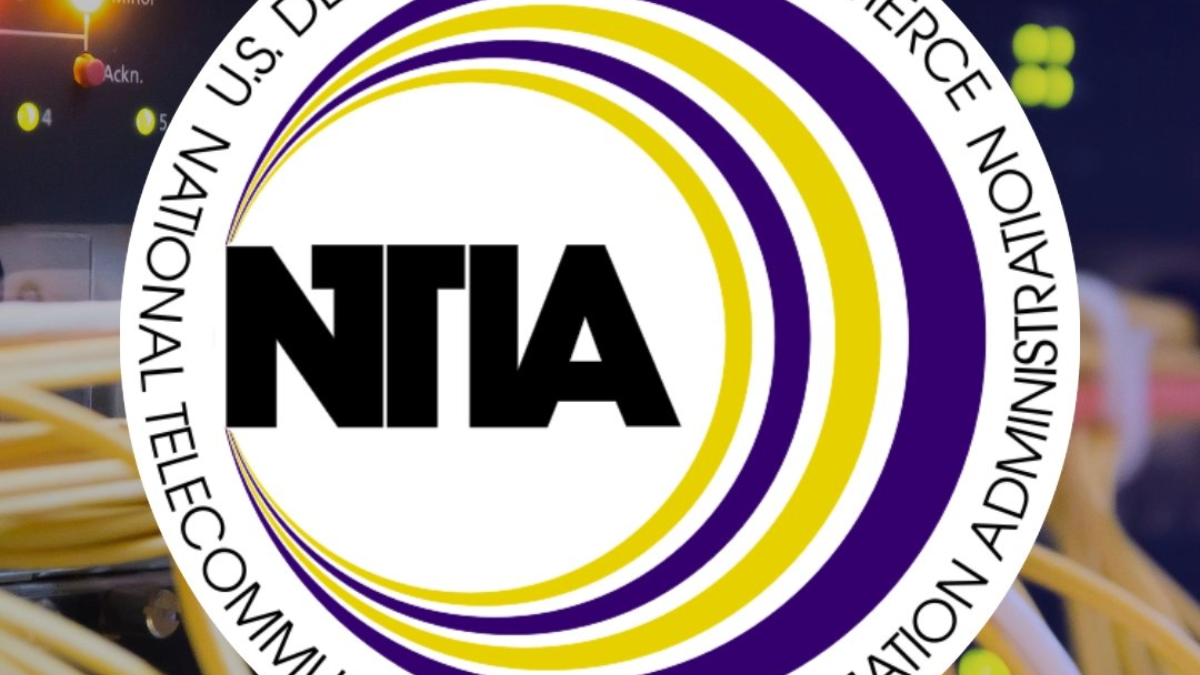NTIA Seeks Approaches to Conduct Ethical Research of Online Services
Ben Lennett / Dec 12, 2024
NTIA Logo (X)
The National Telecommunications and Information Administration (NTIA) is seeking public input on ethical guidelines for researching online data or "pervasive data" to understand technology’s impact on society while protecting privacy and other rights. The request for comment (RFC) will assist the agency in potentially drafting and issuing guidelines to assist researchers working with pervasive data to study human behavior and societal trends.
This data, gathered from online services, is important to the public interest and can help inform policy decisions, but there are important questions concerning how to conduct this research responsibly. The proposed guidelines would address the use of "pervasive data," which the RFC defines as “data about people—user-contributed, observed, derived, or inferred—collected through online services regardless of the extent to which the data is publicly available, is aggregated, or could lead to the identification of an individual.” This data can include text, images, videos, biometric information, behavioral data (e.g., purchases, search history, location data), and anything else that forms a person's digital footprint.
The RFC acknowledges existing ethical research frameworks like the "Common Rule," which governs human subjects research in the US. The Common Rule mandates institutional review board (IRB) approval for non-exempt human subjects research funded or conducted by federal departments. These IRBs assess research proposals based on ethical principles, including informed consent requirements. However, the RFC highlights that the Common Rule may not always apply to ‘pervasive data’ research, given that it applies to research involving the use of identifiable private information. Consequently, research using non-identifiable data or falling under specific exemptions might not be subject to the Common Rule, even if federally supported.
Why it matters
As debates over how to address concerns over online safety continue to challenge policymakers, this initiative is an important contribution to establishing ethical standards for researching online data while protecting individual privacy and advancing scientific understanding. The RFC provides that “pervasive data is essential in efforts to understand the impact of technology on society.” Key federal initiatives, including the Kids Online Health and Safety Task Force Report and the Surgeon General's Youth Mental Health Advisory, emphasized the importance of research to determine the impact of social media and other technologies on children.
Even as the US is likely to pull back governmental support from many avenues of research under the incoming Trump Administration, other countries will continue forward. The RFC emphasizes the global nature of digital research, highlighting that “Pervasive data can be drawn from global networks and may be analyzed by an international community of researchers.” As part of the implementation of the Digital Services Act, the EU is engaged in its own information gathering involving how platforms share data with external, vetted researchers. Moreover, international efforts such as the Global Online Safety Regulators Network can build on NTIA’s guidelines to carry forward norms for ethical research of online safety that protect privacy and other rights.
What type of information
The NTIA's RFC poses a series of questions addressing ethical concerns and potential risks throughout the research lifecycle, including:
- Benefits and Drawbacks of Ethical Guidelines: Input on the potential advantages and disadvantages of establishing national ethical guidelines for pervasive data research.
- Scope of "Pervasive Data": Feedback on the proposed definition of "pervasive data," specifically whether particular data types should be included or excluded and whether similar definitions already exist.
- Barriers to Data Access: Understanding the existing barriers to accessing pervasive data for research, including the types of research questions hindered by these barriers and the potential benefits and risks of removing them.
- Value of Data for Public Interest: What types of data held by online services would be most beneficial for research serving the public interest?
- Consent and Autonomy: How researchers should address consent and autonomy in pervasive data research, including questions about appropriate consent models, alternative approaches to traditional consent, and the influence of context (e.g., mandatory use of online services for work or school).
- Ethical Considerations in Research: Discussion of ethical issues and mitigation strategies during various research phases, including design, data acquisition and access, processing and analysis, and dissemination and archiving.
- Existing Ethical Frameworks: Relevant existing ethical frameworks from professional organizations and government agencies that should inform the development of national guidelines.
- Legal Obligations: Existing legal requirements affecting pervasive data research, including risks falling outside the Common Rule's purview, steps to ensure complementarity with existing regulations and potential uncertainties, barriers, and protections created by state and federal laws, international regulations, and online service terms of service.
Where to submit and deadlines
The NTIA is inviting stakeholders from across sectors — including researchers, academics, civil society, and industry — to contribute to the guidelines. Participants are not required to address every question and can provide broader insights on the topic and can also provide relevant input on the topic even if there is no related question.
The deadline for submitting comments is January 15, 2025. The RFC can be found here, and comments can be submitted through regulations.gov (NTIA-2024-0004). In addition to the RFC, the agency will be hosting a public online listening session on the topic on December 17, 3:30-5:00 Eastern Standard Time.
Authors
